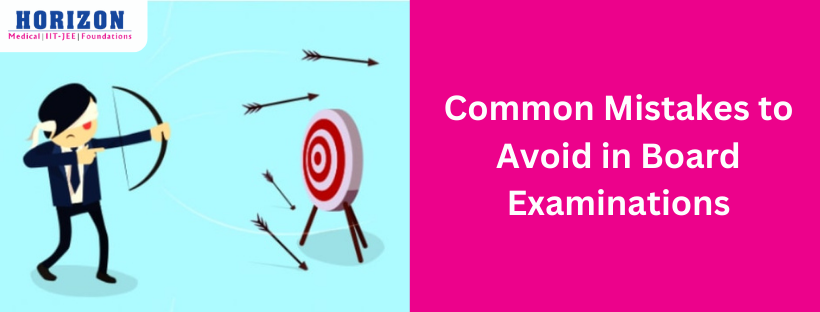CUET Biology Subject Analysis
CUET Biology Subject Analysis: If you wish to pursue a career in medicine, biology is a required subject, and it’s critical that you understand all of its components. But biology is a grade-giving subject since you only need to commit the scientific names to memory. Because there is less time and more topics, you might run into issues with longer topics as well.
For this reason, Horizon Academy in Yamuna Vihar has provided you with Biology Syllabus Analysis. We’ll let you know what topics you should focus on in sections.in order for your preparation time to flow naturally and for you to finish it on schedule. Although every topic matters in every subject, some topics remain unchanged even after six rounds of examinations by the examiners.
You must focus on these few areas if you want to do well in cuet.
Biology/Biological Studies/Biotechnology/ Biochemistry Syllabus of Class 12 for cuet
Unit I: Reproduction
Reproduction in organisms: Asexual and sexual reproduction; asexual reproduction; reproduction, a characteristic that defines an organism for the survival of its species. Plant vegetative propagation includes binary fission, sporulation, budding, gemmule, and fragmentation.
Sexual reproduction in blooming plants: development of gametophytes, both male and female; Flower arrangement types, sources, and examples of pollination; tools for outbreeding; Pollen-Pistil connection; fertilisation twice; events that occur after fertilisation, such as the development of seeds, endosperm and embryos, and fruit; unique methods of reproduction, including polyembryony, parthenocarpy, and apomixis; The role that seeds and fruits play.
The reproductive systems of men and women in humans; the ovary and testis’s microanatomy; Spermatogenesis, oogenesis, and gametogenesis; menstrual cycle conception, development of the embryo through blastocyst formation, and implantation; The basic idea of pregnancy and placenta development The concepts of parturition and lactation are fundamental.
Sexually transmitted diseases (STDs) and reproductive health: The need for and methods of birth control, contraception, and medical termination of pregnancy (MTP); amniocentesis; infertility and assisted reproductive technologies: IVF, ZIFT, GIFT (basic concept for general awareness).
Unit II: Genetics and Evolution
Mendelian Heredity; Variation and Heredity. Variations from Mendelism: Pleiotropy, Blood Group Inheritance, Multiple Alleles, Codominance, and Incomplete Dominance; the Fundamentals of Polygenic Inheritance; Genetics and chromosomes; chromosome theory of Heredity; Sex determination: Linkage and transgression in birds, bees, and Inhumans; Two inherited conditions related to sex are hemophilia and color blindness. Human chromosomal disorders; human Mendelian disorders: Thalassemia Turner’s Klinefelter syndromes and Down syndrome.
The molecular basis of heredity: the central dogma; DNA replication; DNA packing; DNA and RNA structure as genetic material under study. DNA fingerprinting, Lac Operon, the Human Genome and Genome Project, transcription, genetic code, and translation.
Life’s beginnings and evolution biological evolution and the supporting evidence (molecular, comparative anatomy, paleontological, and embryological); The contemporary synthetic theory of evolution and Darwin’s contribution; Mechanisms of evolution: Natural Selection (with examples and types of natural selection) and Variation (Mutation and Recombination); genetic drift and gene flow; Hartley’s formula; Adaptive Radiation and Human Evolution
Section III: Biology and Human Well-being
Pathogens, or parasites that cause human disease (such as malaria, filariasis, ascariasis, typhoid, pneumonia, amoebiasis, and ringworm), are related to health and illness. Basics of immunology: vaccinations; cancer, HIV/AIDS; adolescence and drug abuse.
Plant breeding, tissue culture, single-cell proteins, biofortification, apiculture, and animal husbandry are methods for improving food production.
Microbes in human welfare: Microbes are involved in the production of energy, sewage treatment, industrial manufacturing, and home food processing.
Unit IV: Biotechnology Applications
Genetic engineering, or recombinant DNA technology, is one of the foundations and processes of biotechnology.
Applications of biotechnology in agriculture and health include the production of human insulin and vaccines, gene therapy, genetically modified organisms (transgenic animals and Bt crops), and biosafety concerns (biopiracy and patents).
Unit V: Ecology and Environment
Environment and organisms: niches and habitats with organisms and their surroundings; Population interactions, such as mutualism, competition, predation, and parasitism; Population and environmental adjustments; Features of the population, such as age distribution, growth, and birth and death rates.
Ecosystems: Their composition, productivity, dissolution, and patterns; Energy flow: pyramids of number, biomass, and energy nutrient cycles (phosphorus and carbon); a succession of ecosystems Ecological services include things like oxygen release, pollination, and carbon fixation.
The idea of biodiversity, patterns of biodiversity, the value of biodiversity, and biodiversity loss are all included in the conservation of biodiversity. Preservation of Biodiversity On this list are hotspots, extinction, biosphere reserves, national parks, sanctuaries, endangered species, and the Red Data Book.
Environmental concerns include deforestation, ozone depletion, the greenhouse effect, global warming, agrochemicals and their effects, solid waste management, radioactive waste management, air and water pollution, and their control.
Qualifications Required to Take CUET’s Biology Exam
To be considered for admission to the top central institutions that offer biology instruction and administer the CUET Exam, you must show that they fulfill all of the specific eligibility requirements.
Please review the following to find out the prerequisites for CUET Biology courses, as these requirements apply to all of the universities:
A minimum of 50% or the equivalent grade in the aggregate for candidates in the general category and at least 45% or the equivalent grade for candidates in the SC/ST/OBC/PWD/EWS categories, as well as a minimum of 10 + 2 in Science or its equivalent from any recognized board in India, with Biology as one of the optional subjects.
A Bachelor of Science degree in Botany from an accredited university with a minimum of 50% marks, or the equivalent on the respective university’s grading scale; candidates from OBC (non-creamy layer)/SC/ST/PDW categories must receive 45%. Botany bachelor’s degree from an accredited university with a minimum of 50% of the possible points, or the equivalent on the respective universities’ grading scale.
Cuet biology subject advice and hints to keep in mind
Although there are only 5 units in Biology, this does not mean that you should read only CBSE books. Although CBSE books are sufficient for the cuet, if you want to top the exam, you should not stop there. These five units are significant and extensive in their own way.
If you want to be on top in cuet exam then join the best academy in Yamuna Vihar called Horizon Best for CUET Exam where we have an expert teacher to teach you some extra knowledge for aiming for the top in cuet exam. But first You are strongly advised to follow the syllabus, as this is the first step in the process. If you choose to study a unit such as Genetics and Evolution, make sure you cover all of the topics covered in the syllabus. This ensures that you are ready to answer any questions about this unit. And if you are facing some problem don’t lose patience or don’t panic because in Horizon Academy you have an experienced teacher who helps you in facing any problem.
Furthermore, you must be well-versed in the biology diagrams, as any question may arise from within the diagrams themselves.










